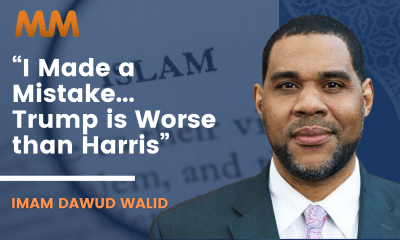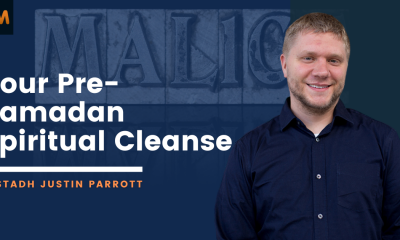Evolution of sīrah
We simply have references in later books of these earlier books. Why aren’t they in existence? The reason is very simple. When later books came, they absorbed the earlier treatises. In the earlier ones, Abban is saying, “My father told me …, my father told me …, my father told me ……” Urwa is saying, “‘Ā’ishah narrated, my father narrated, my uncle narrated.” There are three to four people narrating from different people. Imagine if somebody comes and takes Abban and Urwa and other books and says, “Let me make a bigger book.” Once the bigger book is written, who needs Urwa and Abban anymore? You might as well copy that book. And realize that in those days there were no printing presses. If you want a book, what would you do? You would sit there and write it yourself, from cover to cover.
So, if you had to choose one book, you would choose the bigger one. You would choose the one with more details. It’s a sad case for us now, we wish we had those early books but unfortunately we don’t have them. We do have books that were written in the very next generation – very early. And this shows us that sīrah was compiled by and large even before ḥadīth. They wanted to emphasize sīrah more than anything else, and the greatest scholar of sīrah is someone most of you would have heard of: Ibn Isḥāq.
Keep supporting MuslimMatters for the sake of Allah
Alhamdulillah, we're at over 850 supporters. Help us get to 900 supporters this month. All it takes is a small gift from a reader like you to keep us going, for just $2 / month.
The Prophet (SAW) has taught us the best of deeds are those that done consistently, even if they are small.
Click here to support MuslimMatters with a monthly donation of $2 per month. Set it and collect blessings from Allah (swt) for the khayr you're supporting without thinking about it.
Seerat Ibn Isḥāq
His name is Muhammad Ibn Isḥāq. He was born around 85 Hijrah. Now think about it. He was born in Madīnah, and lived in Madīnah. This is where the Prophet  lived and died, where the children of the Ṣaḥābah were. He grew up around them and their grandchildren. 85 Hijrah is very early. The Ṣaḥābah lived until 100 or 110 Hijrah. Jābir and others died 90 Hijrah. So, Ibn Isḥāq met the sons of Ṣaḥābah, maybe even saw some of the Ṣaḥābah very early. But he began writing everything that he heard, and he just had a passion for the sīrah. So he began compiling it in chronological order, unlike the earlier treatises which weren’t in chronological order. Ibn Isḥāq began saying this happened in early Makkah and this in middle Makkah, and this in late Makkah, then the Hijrah, thus he complied a very large book. And just to be on the safe side, he even travelled to other cities where some of the Ṣaḥābahs went – Basrah, Kūfah. He traveled there to discover the stories of Ibn Mas‘ūd. But his primary source was always in Madīnah.
lived and died, where the children of the Ṣaḥābah were. He grew up around them and their grandchildren. 85 Hijrah is very early. The Ṣaḥābah lived until 100 or 110 Hijrah. Jābir and others died 90 Hijrah. So, Ibn Isḥāq met the sons of Ṣaḥābah, maybe even saw some of the Ṣaḥābah very early. But he began writing everything that he heard, and he just had a passion for the sīrah. So he began compiling it in chronological order, unlike the earlier treatises which weren’t in chronological order. Ibn Isḥāq began saying this happened in early Makkah and this in middle Makkah, and this in late Makkah, then the Hijrah, thus he complied a very large book. And just to be on the safe side, he even travelled to other cities where some of the Ṣaḥābahs went – Basrah, Kūfah. He traveled there to discover the stories of Ibn Mas‘ūd. But his primary source was always in Madīnah.
One of the best things about Ibn Isḥāq was that he compiled with the chain of narrators, called isnād. Isnād is a uniquely Islamic phenomenon. It does not exist in any other religion or cultures. The chain of narrators or isnād tells us where the story came from. In Islam, we always wanted to verify authenticity. We didn’t just base our religion on superstitions and fables. Who told you this? Who told you that? Who told him that, going all the way back to Prophet  ? So we compile the narrators from Ibn Isḥāq, from so and so, and so and so. Back to the son of Jābir, from Jābir to the Prophet
? So we compile the narrators from Ibn Isḥāq, from so and so, and so and so. Back to the son of Jābir, from Jābir to the Prophet  . So we have the whole isnād. And we know every person, when he was born, when he died, how good of a Muslim he was. Did he have good memory or poor memory? – therefore we can judge the isnād.
. So we have the whole isnād. And we know every person, when he was born, when he died, how good of a Muslim he was. Did he have good memory or poor memory? – therefore we can judge the isnād.
Thus Ibn Isḥāq began compiling the life of the Prophet  and he wrote a massive book which was so big it was in 10-15 volumes. Ibn Isḥāq died in 150 Hijrah. He lived from 85 to 150 Hijrah – very early on.
and he wrote a massive book which was so big it was in 10-15 volumes. Ibn Isḥāq died in 150 Hijrah. He lived from 85 to 150 Hijrah – very early on.
Ibn Hisham
The book written by Ibn Isḥāq was so big that it was difficult to copy. But one student came along, actually a student of a student, Ibn Hisham, whose name was Abdul Malik Ibn Hisham who took it up. Ibn Hisham died 213 Hijrah. The reason I’m going into detail here is because the average Muslim should be aware of these two source books of the sīrah – Ibn Isḥāq and Ibn Hisham. So remember – the number one source is Ibn Isḥāq and then Ibn Hisham. Now what’s the difference between Ibn Isḥāq and Ibn Hisham? – Very simple. Ibn Hisham realized that Ibn Isḥāq’s work is too big about 10-12 volumes, so he decided to summarize it. Ibn Hisham did not add anything. He subtracted. He did not rearrange, he deleted. Ibn Hisham simply made lots of cuts. Now Ibn Hisham is available in four volumes. So he made it into a half or a third of the original size. Now somebody will say why did he do that? Why didn’t he leave a large book? We need to realize that in those days, they didn’t have the printing press. If you wanted a book, you’d have to write it yourself cover to cover. He realized there was too much detail. Ibn Isḥāq was one of the first to write a history of humanity. He began from Ādam, and he worked his way down to Nūḥ, Ibrāhīm, and to the Prophet  .
.
Ibn Hisham said, we do not need all of that, so let’s begin with the life and times of the Prophet  . So he deleted the entire section about early history, and a lot of other information he felt was not that useful. So over time, people began copying Ibn Hisham. And if you want to buy a copy of the book, you have to buy Seerat Ibn Hisham. You’re not going to find Seerat Ibn Isḥāq, because now it’s gone missing.
. So he deleted the entire section about early history, and a lot of other information he felt was not that useful. So over time, people began copying Ibn Hisham. And if you want to buy a copy of the book, you have to buy Seerat Ibn Hisham. You’re not going to find Seerat Ibn Isḥāq, because now it’s gone missing.
Dr. Hamidullah’s discovery : However as a side point – there was a very famous Indian scholar by the name of Dr. Hamidullah. He lived until the ripe old age of 93. He passed away 8 to 9 years ago. From India he went to France. He became one of the greatest scholars of orientalism, studying Islam among non-Muslims, wrote books in French and in English, and he became a great researcher.
Dr. Hamidullah discovered many manuscripts. A lot of them ended up in Berlin, Paris, and London. Now how could ancient manuscripts end up over there? Many reasons – one of them is colonialism. When the west came and started purchasing art items and ancient things, they had money and political power. And the sad fact of the matter is some of the early Qurʾāns are now found in Paris. The earliest muṣḥaf is in Paris and another one in London, and so on and so forth. This is just the reality of the state of our Ummah. They left and took all these treasures with them. Some were purchased and some were literally taken by force. So after World War I and World War II, there were lots of manuscripts that were sold for pound sterlings and dollars to rich businessmen who just valued it as art. Lots of ancient manuscripts can be found in Germany. Germans had an interest in Islam in the 18th century. So Hamidullah, who is fluent in Arabic is going through all these treasures in Paris, London etc, and discovers lots of them.
One of the manuscripts he discovered was a partial copy of Ibn Isḥāq. The Ummah had thought Ibn Isḥāq is missing and gone, but he discovered one fourth of his work. And so he edited and published it and that is why we compare and know that it is good to have the earlier sources. Ibn Hisham didn’t just invent the Sīrah, he took it from Ibn Isḥāq. When he compared Ibn Isḥāq with Ibn Hisham, he found Ibn Hisham to be accurate, but he cut off around half or one third of the original.
What did he cut off? He cut off the long poetry, the lineage of the Arabs. So every time Ibn Isḥāq would mention a name, he’d take it back to Nūḥ’s [‘alayhi’l-salām], lineage of 50 to 60 people, so Ibn Hisham had to cut those off and leave 4 to 5. When he compared the work of both, he found that Ibn Hisham was accurate in what he did. And therefore we can now say, alḥamdulillāh, for sure, when we read Ibn Hisham we are reading something written 100 years after the Prophet  passed away. Amazing. This is far before any book of ḥadīth. Bukhari died 256. Muslim died 261. Ibn Isḥāq died 150, and he wrote the book around 130 Hijrah so little under 100 yrs after the death of the Prophet
passed away. Amazing. This is far before any book of ḥadīth. Bukhari died 256. Muslim died 261. Ibn Isḥāq died 150, and he wrote the book around 130 Hijrah so little under 100 yrs after the death of the Prophet  . We have the bulk of Ibn Isḥāq preserved through Ibn Hisham. So, this was the third source of the sīrah, the book specifically written for the sīrah.
. We have the bulk of Ibn Isḥāq preserved through Ibn Hisham. So, this was the third source of the sīrah, the book specifically written for the sīrah.
Shamā’il
The fourth source of the sīrah are the books written about the characteristics of the Prophet  . In Arabic the word is shamā’il. A number of early people wanted to describe the Prophet
. In Arabic the word is shamā’il. A number of early people wanted to describe the Prophet  , and wrote books about his description. Of course the most famous is Shamā’il At Tirmidhee. But there were many shamā’il written, and shamā’il is a genre of books that deals with the looks, the characteristics, the manners, the possessions, and the houses of the Prophet
, and wrote books about his description. Of course the most famous is Shamā’il At Tirmidhee. But there were many shamā’il written, and shamā’il is a genre of books that deals with the looks, the characteristics, the manners, the possessions, and the houses of the Prophet  .
.
Dala’il
Another source of the sīrah are the books written about the miracles of the Prophet  , in Arabic called Dala’il. This is another genre and there are many books of miracles written, so by looking at the miracles you can extract the sīrah. Now the famous book of Dala’il is called Dala’il al Nubuwat al Bai Haqi. This is around 12 volumes of a massive encyclopedia.
, in Arabic called Dala’il. This is another genre and there are many books of miracles written, so by looking at the miracles you can extract the sīrah. Now the famous book of Dala’il is called Dala’il al Nubuwat al Bai Haqi. This is around 12 volumes of a massive encyclopedia.
History of Ṣaḥābah
Another source is the history of the Ṣaḥābah. People recorded the history of the Ṣaḥābah and extracted the sīrah from it. And we’ll mention Makkah and Madīnah. People wrote Tarikh Makkah and Tarikh Madīnah, and so by reading them we extract the sīrah. These are the main sources of sīrah.
Modern sources
Modern people have added verses that were not found in Muslim lands, and this is very difficult, but there is a new genre in academia in Islamic Studies, here in America and in the western world. What did the Romans say about the Arabs at that time? What did the Persians say, what did the others civilizations say? And what stories did Arabs tell those Romans? This is recorded in bits and pieces, and this is another complicated topic. But some of the sources now we have access to, the earlier scholars did not have access to.
So these are the sources of the sīrah.

 #Current Affairs4 weeks ago
#Current Affairs4 weeks ago
 #Current Affairs1 month ago
#Current Affairs1 month ago
 #Culture1 month ago
#Culture1 month ago
 #Islam3 weeks ago
#Islam3 weeks ago
 lived and died, where the children of the Ṣaḥābah were. He grew up around them and their grandchildren. 85 Hijrah is very early. The Ṣaḥābah lived until 100 or 110 Hijrah. Jābir and others died 90 Hijrah. So, Ibn Isḥāq met the sons of Ṣaḥābah, maybe even saw some of the Ṣaḥābah very early. But he began writing everything that he heard, and he just had a passion for the sīrah. So he began compiling it in chronological order, unlike the earlier treatises which weren’t in chronological order. Ibn Isḥāq began saying this happened in early Makkah and this in middle Makkah, and this in late Makkah, then the Hijrah, thus he complied a very large book. And just to be on the safe side, he even travelled to other cities where some of the Ṣaḥābahs went – Basrah, Kūfah. He traveled there to discover the stories of Ibn Mas‘ūd. But his primary source was always in Madīnah.
lived and died, where the children of the Ṣaḥābah were. He grew up around them and their grandchildren. 85 Hijrah is very early. The Ṣaḥābah lived until 100 or 110 Hijrah. Jābir and others died 90 Hijrah. So, Ibn Isḥāq met the sons of Ṣaḥābah, maybe even saw some of the Ṣaḥābah very early. But he began writing everything that he heard, and he just had a passion for the sīrah. So he began compiling it in chronological order, unlike the earlier treatises which weren’t in chronological order. Ibn Isḥāq began saying this happened in early Makkah and this in middle Makkah, and this in late Makkah, then the Hijrah, thus he complied a very large book. And just to be on the safe side, he even travelled to other cities where some of the Ṣaḥābahs went – Basrah, Kūfah. He traveled there to discover the stories of Ibn Mas‘ūd. But his primary source was always in Madīnah.
















Melanie
March 21, 2014 at 12:31 PM
Jazaka Allah Kharyun, Dr. Qadhi for the reminders..i love the written transcript so much easier for me to read and review.
yellow roses
March 21, 2014 at 12:38 PM
May Allah continue to bless you and your family !!! This came at the right time for me.
Aly Balagamwala
March 22, 2014 at 10:10 AM
Dear Sister
Jazakillahu Khairin for your regular comments on our site. Please note that our Comments Policy states that you must use your name, a Kunyah or a valid blog handle if it is linked to your blog and a valid email address. This has been pointed out to you earlier in a couple of comments. Kindly help us by following the guidelines of the Comments Policy.
Best Regards
Aly
Shifaya
April 8, 2014 at 12:23 AM
JazakAllahu Khayran for the wonderful transcription. Looking forward for part 4, In Shaa Allah :)
Mohammed
April 15, 2014 at 8:24 AM
Masha Allah this is scholarly work. Keep up the good work. Jazak Allah khairan
Thasneem
April 24, 2014 at 2:09 AM
Assalamu alaikum! I have a few questions to be answered by Dr. Yasir Qadhi. I have been listening to his lectures on the Seerah of the Prophet Muhammad ( PBUH ) uploaded by MemphisIslamicCenter on YouTube and have covered upto Hudaybiyya.
1. It was told that Kunooth was recited by Prophet Muhammad ( PBUH ) only at times of calamity for the Ummah as a whole as in the massacre at well of Mauna and Al Raji and not in the Fajr prayers.
2. It was also told that the period of Iddah is one menstrual cycle and not 3 months or 4 months & 10 days as argued by some.
3. The last question is the gusl for Janabath. Is it necessary for gusl or just the ablution will clean you from the state of impurity.
There are many views regarding these. Can you please explain further the different views by renowned scholars and the Sunnah practiced by our prophet. I would like to know the view of Dr. Zakir Naik also since I follow some of his lectures and find them to have been researched.
Jazakallahu khaira!
Kari
May 20, 2014 at 8:11 PM
Assalamu Alaikum. JazakAllah Khair for the transcript! Really appreciate it..
sayyadi
June 27, 2014 at 1:13 AM
Jazakallah. An islamic historian student from Nigeria.
Gul
September 27, 2014 at 9:06 AM
السَّلاَمُ عَلَيْكُمْ وَرَحْمَةُ اللهِ وَبَرَكَاتُهُ
JazakAllah Khayran for the transcription of this series. It has been immensely helpful. I was wondering if you are going to be doing the rest of the videos of this series?
Sarah
November 2, 2014 at 3:17 PM
Please do the others! These are hugely beneficial. jazakallah khayran
Safwan
February 7, 2015 at 12:58 PM
Jazak’Allah Khair for this.
For anyone wanting more transcribed notes for the seerah lectures, please visit https://www.scribd.com/safwan9khan.
I have (as of writing) completed notes for all the lectures up to lecture 61. The remaining will be complete within the next two months inshaAllah. Please share with others if you find them beneficial.
Abdullah Sherazi
October 29, 2015 at 10:26 AM
Assalamu Alaikum Brother,
Can you send me the transcripts in my email abbudm@yahoo.com?
JazakAllah Khairan for your hard work.
Haris Khan
December 10, 2015 at 10:57 PM
I can’t download it from Scribd as it required payment for registration. Please, please I need them all. Can you email me at hariskamalkhan717@gmail.com?
abu Hamzah
March 25, 2015 at 12:32 PM
As salamu alaikum. have Zohra written more notes than 3 parts. The notes are really good mashaAllah.
Fatuma Abdi
April 18, 2015 at 10:41 AM
Assalama Aleikum.I have learnt a lot.Jazakallah kheir may Allah bless you
Ibrahim
June 11, 2015 at 5:19 AM
Assalamu alaikum..I learnt a lot from Dr. Yasir..Also looking for the transcripts of the other parts of the seerah series by Dr. Yasir.(part 4 to part 104) .. Got only the first three transcripts here..Is there any link where i can get all the transcripts regarding the seerah series??Appreciate any suggestions..Allah Hafej
Safwan
November 29, 2015 at 10:17 AM
Please see http://www.scribd.com/safwan9khan. Alhamdhulillah I have transcribed the entire seerah series. InshaAllah they will be beneficial to you. JazakAllah Khair.